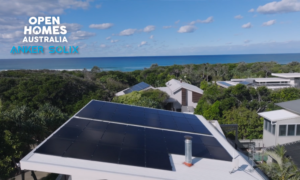Solar battery storage is becoming an increasingly popular investment for homeowners looking to make the most of their solar-generated energy. While the cost of the technology is keeping many Australians on the fence, data shows that the combination of low feed-in tariff rates and a growing interest in greater energy independence is making battery storage a more attractive option.
If you’re considering taking the leap, you’ll have to make a few decisions. A very important decision is the size of your solar battery. There are a number of factors that will influence the size of your solar battery, but we’ve broken it down into four main categories: why you want a battery, your electricity usage, your budget constraints and your new or existing solar system size.
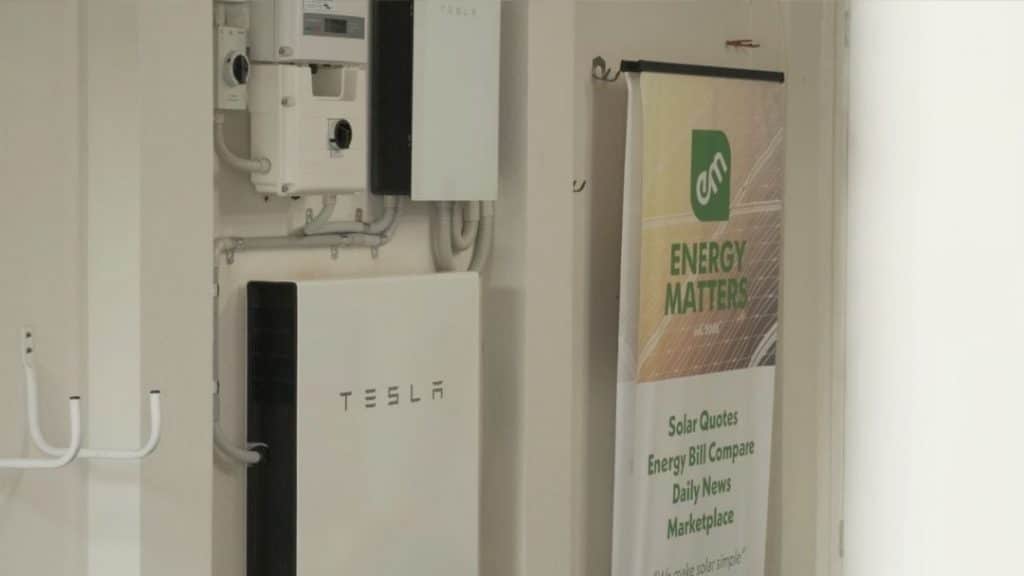
Why do you want a solar battery?
Not everyone wants a solar battery for the same reason. The main reasons people invest in solar batteries are to:
- Reduce their reliance on the grid or go off grid
- Store energy for use during blackouts or emergencies
- Use energy stored in their battery to reduce costs from using electricity from the grid
- Reduce their carbon footprint
In many cases, its a combination of these reasons.
If you want to significantly reduce your reliance on the grid or go off grid, you’ll need a big battery. In this instance, the benefits of energy independance should be your major motivating factor as it might not stack up financially.
On the other hand, if you want a solar battery mainly for backup power to store energy for use in emergencies, a smaller battery will do.
If you want to store energy to maximise your solar energy consumption when the sun isn’t shining during the night, on cloudy days or during peak demand times (when electricity prices are higher), then it’s really a matter of how much usage you want to cover. If you want to save money on your energy bills, then you should expect to still buy some electricity from the grid at certain times of the year.
How much electricity do you use and when do you use it?
The average Australian household uses 16-20kWh of electricity per day. A typical solar household might use a third of their electricity during daylight hours when their solar panels are producing electricity, while the remaining two thirds are purchased from the grid.
In this represents your household and you want to cover the electricity you purchase from the grid, you would need a battery with a capacity of at least 10kWh.
Some families use considerably more electricity than this, especially if they have large homes with reverse cycle air conditioning or a pool. On the flip side, other homes – particularly newer homes, are far more energy efficient, using far less than the typical household.
The simplest way to estimate your energy usage is to check your energy bill. On your latest bill there is often an average daily usage figure in kWh.

What is your budget?
One of the deciding factors for many people when it comes to solar batteries is the cost. While prices are slowly dropping, a battery still a sizable investment.
As a rule of thumb, residential solar battery storage prices are currently around $1,000 per kWh including installation and GST. Variables to consider include the size and brand of battery, the solar installers used to complete the works and whether additional works are required to make the battery compatible with your system (like installing an additional inverter).
While this isn’t always the case, anecdotal data largely suggests that solar + battery storage bundles offer the best value.
Some state governments offer solar battery rebates and incentives to assist with the upfront cost of solar batteries.
If you’re looking for a return on investment, many battery systems are approaching the break even point when it comes to their warrantied life but few are currently paying for themselves in energy cost savings.
While the return on investment might not be quite there yet, a solar battery can offer benefits in other ways, like peace of mind during a power outage, less reliance on the grid and a reduced carbon footprint. Afterall, many investments, like holidays, a new TV or security system offer no ROI but instead offer benefits like happiness, entertainment or security. It comes down to your personal preferences and choices—what makes sense for you might not make sense for the next person.
What size solar system do you have or are you planning to buy?
The final factor to consider when sizing your battery is the size of your solar panel array. The steps to calculate your battery size will differ depending on whether you’re looking at adding a battery onto an existing system, or installing one with a whole new system.
Adding a battery to an existing system
If you already have solar panels on your roof and want to add a battery, then the capacity of that existing array should guide your battery size needs.
If your current system only generates enough solar power to meet a small portion of your energy needs, it may not be worth purchasing a battery. After all, if you’re consuming the vast majority of your solar generation, there will be very little solar power leftover to store in your solar battery storage. Instead, it might be worth considering expanding your solar power system.
In any case, it’s best to consult an accredited solar installer to get an accurate assessment of your solar system and what size battery would be suitable.
Adding a new solar + battery storage system
If you’re starting from scratch then you can tailor both your solar pv system and battery storage system to suit your exact power needs.
Energy Matter’s solar and battery storage calculator is simple to use. It can help estimate not only the size of your solar and battery storage system, but also your weekly and annual savings. You then have the option to send this information to accredited local installers for up to 3 obligation-free quotes.

It’s worth shopping around
As you can see, there’s a lot to consider when it comes to sizing a solar battery. If you have a good idea of your goals, energy usage, budget and any other potential limitations ahead of time, you will be able to discuss these with your installer to find the best outcome.
At the end of the day, deciding to buy a solar battery storage system is a significant financial commitment so it’s worth shopping around. Remember, Energy Matters can help you get solar quotes from multiple accredited installers to save you time and money.
So, what size solar battery do you need? It really depends on your specific needs and situation. If you have any questions or want some help sizing a system for your home, we can put you in touch with accredited solar and battery storage installers in your local area.
When businesses are searching for every opportunity to save, solar is one of the simplest investments a company can make. Solar offers substantial long-term advantages and, in most cases, instant savings on the cost of power to keep the lights on even if financed.
The growing use of solar power by Australian enterprises is also driving the industry forward. There are numerous advantages to using solar energy in Australia, and company owners around the country increasingly recognise it.
In this article looks at the top 7 reasons your business should invest in solar energy.
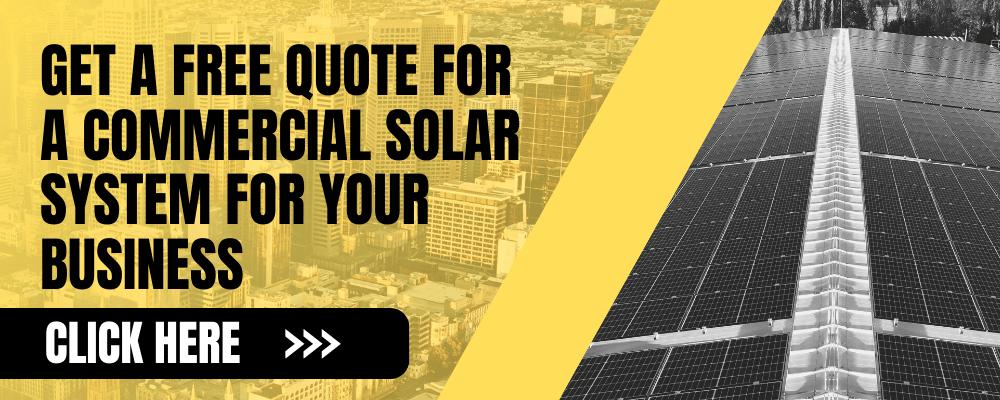
1. Lower your business operating expenses by reducing your electricity bill
Numerous overhead charges in business can make or break your bottom line. Electricity bills are one such item that drains hundreds, if not thousands, of dollars from your wallet each month. Businesses that install solar panels, and generate their own electricity, can significantly reduce their electricity expenses, reducing overhead costs.
Whether you are a homeowner, a business, or a non-profit, energy bills can account for a significant amount of your monthly spending. With a solar panel system, you will create free power for your system’s lifespan. Even if you don’t produce 100% to cover the energy you consume, solar will lower your utility bills and save you a lot of money.
2. Reduce your carbon emissions and environmental benefits
Carbon dioxide is a major factor causing greenhouse gasses. The electricity industry produces most of the energy we use from fossil fuels. Using sunlight instead of fossil fuels is one impactful way your business can reduce carbon pollution.
As a business owner, you’ll have peace of mind knowing that your business is helping the environment by generating its emission-free electricity.
3. Increase the value of your property
Solar energy can enhance both energy savings and property value. Consumers are willing to pay high prices for solar-powered properties. Many people realise that solar panels can be profitable long-term investments. Electricity providers’ costs continue to rise even if solar power is free. Nonrenewable energy is not infinitely available. The renewable energy business is advancing due to resource depletion and stricter legal regulations in production. Adding a solar system will increase property value no matter the size of your business.

4. Boost energy independence
Another significant advantage of switching to solar power is independence from commercial energy sources. You can reduce or eliminate your reliance on your local power company by investing in a self-contained solar PV system. Aside from saving you money on overheads, you’ll have the assurance of a consistent electric supply regardless of what happens to the commercial grid.
Solar panels, unlike machinery or production equipment, have no moving parts. Many interconnected solar panels use a photovoltaic technique to convert the sun’s rays into live alternating current electricity.
Check out our page for solar panels and Best Solar Panels In Australia.
A solar storage battery is useful when the power goes out and can also help you save money by providing energy at the most expensive times of the day.
Energy Matters can assist you in choosing the best solution for a solar battery’s suitability using our Solar Power and Battery Storage Calculator.
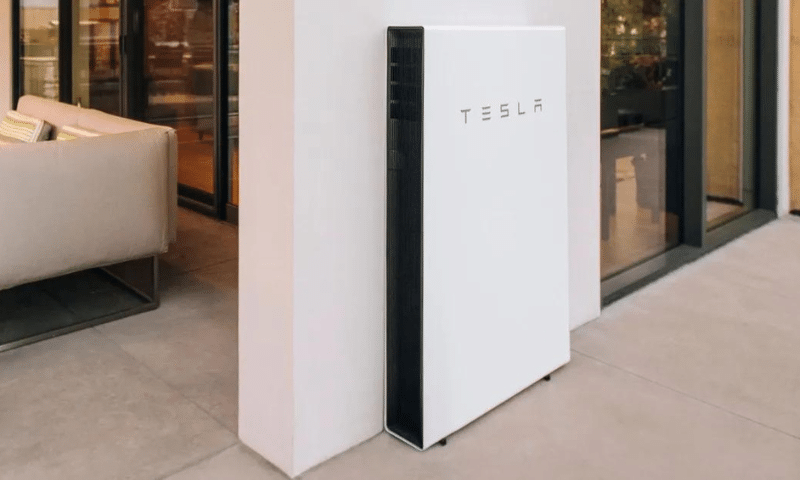
5. Earn a great return on your investment
Solar panels are not simply an expense; they are one of the best ways to invest, with returns comparable to more traditional investments such as equities and bonds.
Check out our page to learn more about how commercial solar is a good investment for Australian businesses.
6. Available government rebates, incentives and value of STCs for businesses
Another compelling reason for businesses to go solar is that the value of most government rebates that reduce the cost of a solar system is limited.
LGCs and STCs are government incentive that reduces the upfront cost of a solar PV installation. STCs incentives are for system sizes up to 100kW, while LGCs are for 100kW and more.
Feed-in tariffs (FiTs) are the payments made to businesses when excess solar power generated is put back into the grid. These are credited to your electric bill. Business owners should be allowed to negotiate pricing with their electricity retailer when connecting their system to the grid.
FiTs, STCs, and rebates differ by state and territory.
Systems larger than 100kW attract Large-scale Generation Certificates (LGCs) which provide yearly certificates that can be sold or transferred to entities liable under the Renewable Energy Target.
7. Improve your green credentials
Most Australian customers focus on purchasing from companies that demonstrate corporate social responsibility to people, communities, and the environment. Not only will solar increase the company image, but it will also give firms a green reputation for being environmentally conscious. In a competitive market, become the clear choice for customers over those that continue to utilise polluting old sources of electricity.
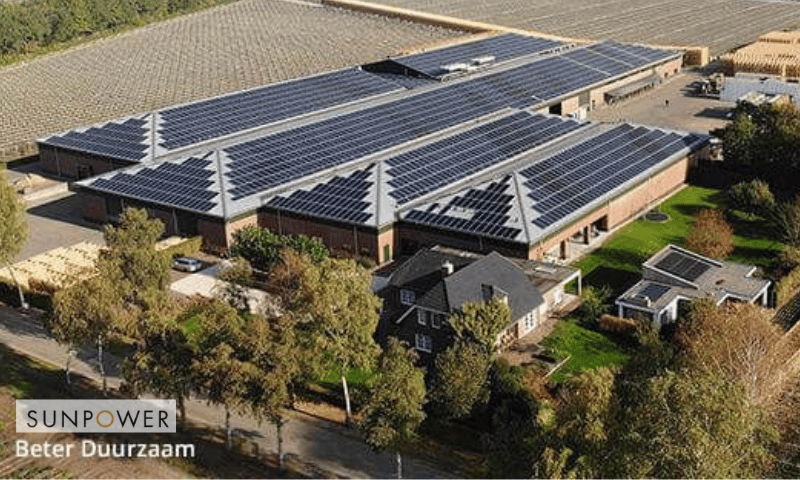
Is solar energy suitable for your business?
Solar energy has numerous advantages that are worth investigating. Investing in solar will minimise your operational costs, reduce your company’s carbon footprint, and prepare it for the future. A commercial property with a solar installation is excellent for business.
Contact us today for up to 3 FREE quotations from commercial solar firms we’ve pre-qualified and vetted for their track record of delivering the best business solar systems in Australia. Get your free quotes and begin your solar journey today!
Updated January 2023
Now is the right time to switch to Melbourne solar energy. We recommend seeking at least 3 solar quotes to ensure that you are getting the best deal and selecting the right solar installer in Melbourne whom you can trust. With this, you can guarantee a solar system in Melbourne that meets your energy needs.











